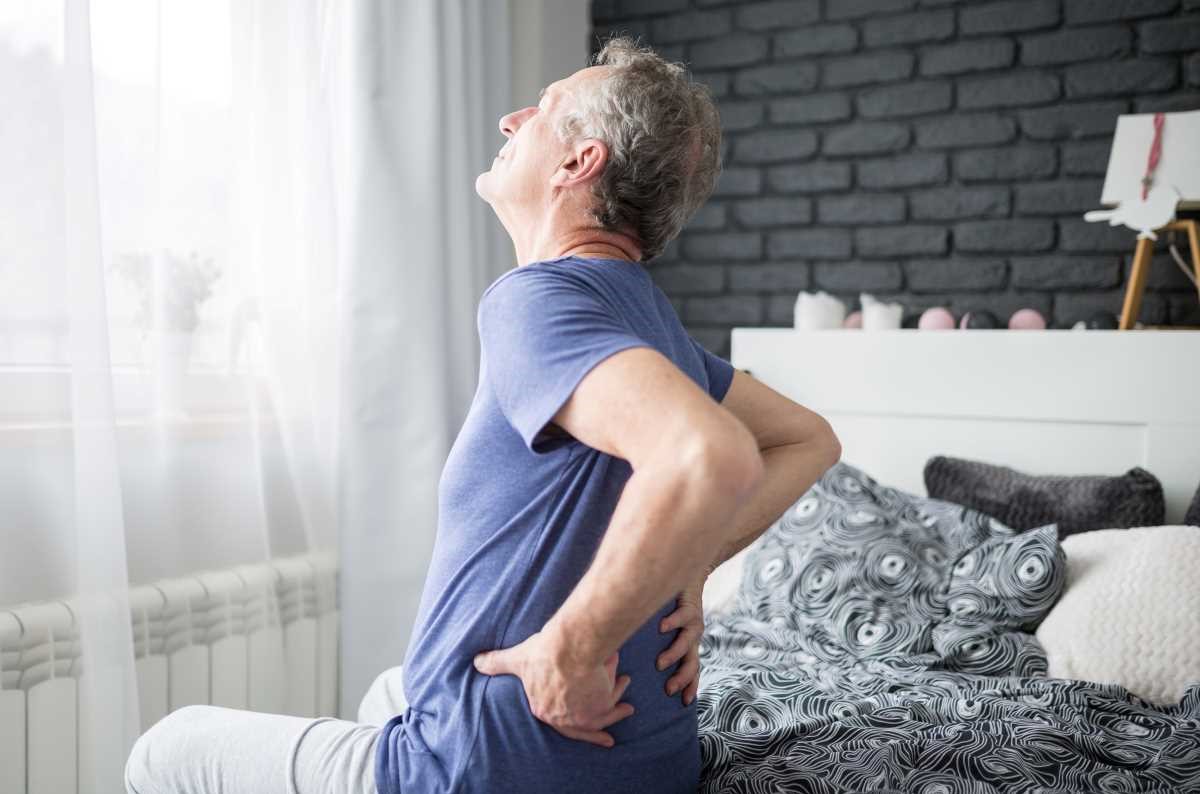Dealing with morning stiffness
November 5, 2020 by Lisa Bywaters

Do you wake up feeling stiff in the morning and find it hard to get moving?
You’re not alone. It happens to so many people with a musculoskeletal condition, especially when waking and after periods of inactivity like travelling long distances in a car/plane, binge watching a TV show for hours or sitting at your desk all day.
The stiffness you feel may be caused by inflammation in the joint, lack of movement preventing the ‘oil’ in your joints (also known as synovial fluid) from lubricating the joints, ageing or damage to the cushiony cartilage inside the joint or tight muscles and tendons.
With inflammatory conditions (e.g. rheumatoid arthritis, lupus, gout) this stiffness may last for over an hour. With conditions such as osteoarthritis it tends to go away more quickly.
Depending on how long it lasts and which joints are most affected, joint stiffness can get in the way of you being able to do the things you want and need to do.
So what can you do to manage morning stiffness and get on with your day?
- Have a plan. If morning stiffness is something you have to deal with on a regular basis, it pays to be prepared. That means planning your morning the night before. Sort out whatever you and your family will need for the coming day – lunches, clothes, homework, permission slips etc. All of the things you race around madly in the morning trying to do. Try and get into the routine of having this done before you go to bed. Whether you wake up in pain or stiff or feeling fine – being prepared means you won’t feel stressed or pressured in the morning and you can pace yourself. And don’t forget to get the family involved in these chores.
- Take time to stretch out. When you wake up feeling stiff, gently stretch your body. Depending on how you’re feeling, you can do this in bed or get up and stretch. Methodically work through all of your stiff joints and take them through their range of movement until you start to feel a bit looser and your joints and muscles warm up.
- Use heat to help you get moving. When you warm up stiff muscles and joints, it encourages blood flow to the area, which helps your body relax and loosen up. You can do this by taking a warm shower or bath, turning on your electric blanket while you do your stretches in bed, use heat rubs, put your hands in a warm basin of water or use heat packs. There are so many options for heat therapy – just be careful you don’t make the heat too hot, or apply to an inflamed joint.
- Do some gentle exercise. Once you’re up and moving, it can be really helpful to do some gentle exercise like yoga, tai chi, go for a swim or a walk around the block. As well as continuing the process of relaxing your body, it will help you relax mentally and prepare for the day ahead.
- Get a massage. A massage from either yourself, your partner or a professional can also be a great way to loosen up. Read our blog about the benefits of massage to find out more.
- Apply topicals. Another way to apply warmth to stiff and painful joints is to use heat rubs, gels, sprays and creams that are applied directly to your skin (topically). There are a lot of them available, in many different forms and using different ingredients. When you apply them you’re actually benefiting from two things – the product itself and the mini-massage you enjoy when applying the product. Topical products work in a variety of ways and use different ingredients. Note: Be careful when using topicals that you read the instructions carefully, wash your hands thoroughly and avoid contact with your eyes and other sensitive areas.
- Use your gadgets. For many people, joint stiffness can last for some time. The self-care techniques we’ve looked at so far will help, but may not completely get rid of all of your joint stiffness. That’s where aids and other gadgets come in. Things that take the stress off your joints can be extremely helpful, and reduce the risk of damaging joints or increasing your pain levels. Think of things like jar openers, zip pulls, thick grip pens, walking aids, a swivel seat to help you get in and out of the car etc. There are a lot of options available, so it’s best to talk with an OT for information and advice that specifically tailored to you.
- Medications may help. Non-steroidal anti-inflammatory drugs (NSAIDs) may help some people manage their morning stiffness. They’re available over-the-counter or with a prescription. Or taking your medications before you go to bed may reduce the risk of joint stiffness in the morning. Talk with your doctor or pharmacist before you start taking any new medications or change your medication schedule.
Call our Help Line
If you have questions about things like managing your pain, your musculoskeletal condition, treatment options, COVID-19, telehealth, or accessing services be sure to call our nurses. They’re available weekdays between 9am-5pm on 1800 263 265; email (helpline@msk.org.au) or via Messenger.
More to explore
- Joint stiffness
MSD Manual Consumer Version - Heat therapy helps relax stiff joints
Arthritis Foundation (USA) - How to manage morning stiffness with rheumatoid arthritis
Medical News Today - Morning Stiffness – what’s the story?
West Hampstead Physio (UK)








